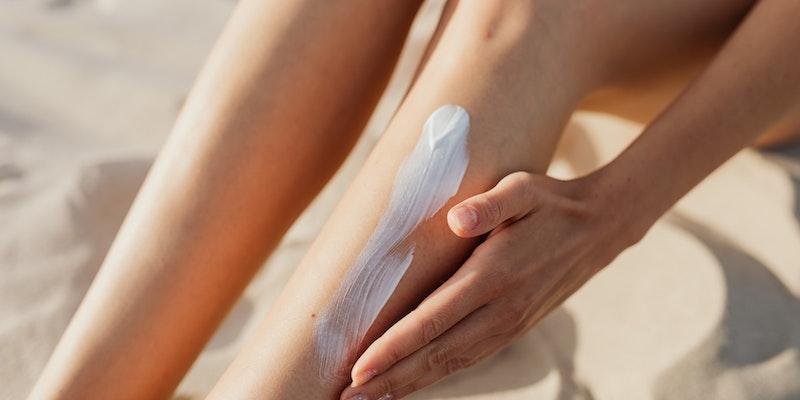SPF 50: What You Need to Know
Oct 30, 2023 By Nancy Miller
SPF, or "sun protection factor," signifies the level of protection a sunscreen provides against the sun's harmful rays. Think of the number attached to SPF as a measure of how effectively the product shields your skin.
An SPF 50 sunscreen filters out more dangerous rays than an SPF 30 sunscreen. When worn as instructed, an SPF 30 sunscreen lets 3.3% of UVB rays reach your skin. However, SPF 50 reduces this to 2%. While this might seem like a marginal difference, when considering cumulative exposure over the years, it becomes substantial.
Breaking Down How SPF Works
Sunscreens serve as your skin's shield, defending it against UV rays either by reflecting them away or absorbing them. Here's a simple breakdown:
- Physical sunscreens: These are also known as mineral sunscreens. Their primary role is to act like a mirror and reflect the UV light.
- Chemical sunscreens: They function by absorbing UV light.
The protective efficiency of a sunscreen is primarily determined by its SPF rating:
- SPF 15: Filters out approximately 93% of UVB rays
- SPF 30: Filters out roughly 96.7% of UVB rays
- SPF 50: Filters out around 98% of UVB rays
- SPF 100: Impressively, it filters out about 99% of UVB rays
Remember that no sunscreen blocks 100% UVB rays. To maximize protection, reapply sunscreen every two hours.
How Different SPF Levels Protect Your Skin

Your sunscreen's SPF number estimates how long you can spend in the sun without burning compared to bare skin. For instance, SPF30 sunscreen lets you stay in the sun 30 times longer than without protection.
That said, several variables can affect this protection duration, including:
- Your skin's natural fairness
- Activities that might cause the sunscreen to wash or rub off, like swimming or exercising
- Proper application of the product
For the best results and to ensure you're safeguarded adequately, it's essential to follow application guidelines meticulously. Also, consider wearing protective clothing over exposed areas when possible.
Selecting the Perfect SPF for Your Skin
Contrary to popular perception, melanin content doesn't determine your skin's SPF level. Sunscreen with at least SPF 30 is essential, even for darker skin. However, lighter skin may need more sunscreen SPF 50 since its natural melanin may be less protective.
Here's a quick guide for SPF selection based on skin type:
- Dry Skin: Opt for SPF 30.
- Sensitive Skin: Sunscreen SPF 50 is preferable since such skin is more prone to damage. An SPF of 50 offers enhanced protection.
- Mature Skin: Consider using SPF 50, as aging skin becomes more vulnerable.
Remember that a sunscreen's SPF indicates UV protection duration and performance. Talk to a dermatologist or healthcare professional about the appropriate SPF for your skin, especially if you have a specific skin issue.
Is SPF 50 Good for Facial Use?
While SPF 50 offers superior protection, lower SPFs can also be effective when used correctly and reapplied as needed throughout your day. Premature aging can often be traced back to damage from the sun. Guarding your skin against these harmful rays not only preserves its youthful radiance but also promotes overall skin health. While embracing the natural aging process is beautiful, it's wise to prevent unnecessary damage from the sun.
SPF50 can also help your face feel better. It protects your face from UV rays, which are bad for it. This evens out the surface and makes it smoother. If you want your skin tone to be even, you should use SPF 50 sunscreen daily. It's a safety measure that hides skin problems and stops new ones from showing up because of too much sun. It's easy to get bright, smooth skin with sunscreen.
Considering that your face is consistently exposed to the elements, integrating SPF into your daily regimen is crucial. A facial cream infused with SPF can streamline this protection process, especially when the sun plays hide and seek behind the clouds.
Thankfully, there's an array of moisturizers fortified with SPF 50 available in today's market. From hydrating day creams and subtly tinted formulations to advanced anti-aging solutions, they're crafted with enriching ingredients that cater to your skin's daily needs while offering that all-important UV shield.
Is SPF 50 the Right Choice?
While sunscreen SPF 50 offers roughly 98% protection from UVB rays, SPF 30 provides about 96.7%. It's worth noting that using an SPF higher than 50 gives only slightly more protection, and no sunscreen can offer a full 100% shield. Although SPF 30 usually offers sufficient protection when applied correctly, opting for SPF 50 gives an added layer of defense against sun-related harm.
Guide to Applying Sunscreen

For adequate sun protection, you must ensure your entire body is coated with sunscreen. Even the best sunscreen will fail to protect if it isn't applied thoroughly. For ideal protection, slather sunscreen on all exposed skin parts and reapply as often as necessary.
The required sunscreen amount differs based on age:
- Infants (below three years): Use between 5 to 10 ml. Always ensure infants stay in shaded areas away from direct sunlight.
- Young Children (3-5 years): Need 10-15 ml. For comprehensive advice on sun protection for kids, refer to guidelines like those provided by experts.
- Older Children (5-10 years): Typically need between 15-20 ml.
- Adults: Around 30 ml should cover the entire body.
For facial application, use sunscreen as the concluding step in your skincare regimen. Ensure coverage extends to your neck and chest. It's recommended to apply sunscreen about 20-30 minutes before heading out to allow your skin time to absorb it.
How Long Does SPF 50 Last & When to Reapply?
SPF 50 extends your skin's natural defense time by 50. However, the efficiency diminishes over time and with lower SPFs. Therefore, it's advised to reapply sunscreen every two hours.
Should you swim or participate in physical activities, you must reapply more frequently since water and sweat can diminish the sunscreen's effectiveness. Keeping a portable bottle of SPF50 sunscreen can be a convenient way to refresh your sun protection throughout your day.







